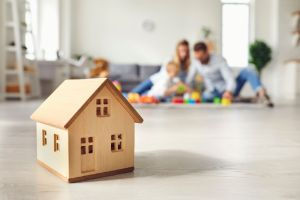Beyond the Classroom: Valuing Parent's Lived Experience in Education
- Mable Green
- Oct 25, 2025
- 3 min read

"Lived experience" is the personal knowledge and understanding gained through direct, first-hand involvement in everyday events and activities. It encompasses the insights, feelings, and perspectives that individuals develop through their unique personal experiences. Theoretical knowledge or second-hand information comes from qualifications and books. The lived experience emphasises the importance of personal stories and subjective reality.
"Lived experience" is crucial for understanding how people perceive and make sense of their world. Sociology, psychology, and philosophy benefit from this knowledge. This highlights stories of individual experiences of marginalised or underrepresented groups to be heard.
My Lived Experience
My story is not unusual in education today, so I wanted to write a book to reach out to parents who feel lost or not understood. We don't need to do this alone, and if more of us talk, then maybe things will change.
For my book, click Neurodiversity in Education: An Autistic Child's Journey through Mainstream School.
A Fussy Parent or an Advocate
Do they really value the parents' understanding of their child? Is there enough respect and acknowledgement for the parents' experiences and insight into their child? Many specialists have a sense of what it's like to have a child with special educational needs, but this is through a qualification that allows them to be an authority on our children, which is usually a stereotype.
Is there enough lived experience in education, or is it just an educational bubble
There is not enough time to find out how our children work, and it is not essential. Extra work requires more money and resources, and the education system is about bums on seats and imparting knowledge. The educational curriculum is becoming so restricted that more and more children struggle to access the subjects, so how can you keep children motivated? Those not fitting in are punished, and their behaviour is corrected. The medical model assesses children for a medical condition to justify why they are wrong, and the system is correct.
Schools are slowly seeing the implications of not supporting a child's mental health. This Victorian school model is inadequate to support the future generation's education.
Parents and professionals who are neurodiverse or who have children with neurodiverse issues see the bigger picture of a child's life. They understand how to support a child with additional needs. Sometimes, the parent needs reassurance or an understanding of the sensory challenges. Teachers and Learning Support Assistants need these skills and knowledge from the parents.
Research
The importance of understanding children’s lived experience
Author - Barbara Rogoff, Audun Dahl, Maureen Callanan
In this article, we argue that the field of developmental research needs to focus more on understanding children’s lived experience and practices in the everyday settings of their lives, as participants in cultural communities. Children’s development occurs within and through their everyday experiences, which, for all children everywhere, are cultural experiences. Understanding the learning opportunities and the societal organisation involved in what they know and do is essential. Full article - click here
organisation
My lived experience in education
Walking into the Year 1 classroom on the first day with my son, my instant feeling was that he was going to struggle with this environment. I didn't know why, a mother's instincts after 6 years of knowing this boy. He had already experienced some bullying in the Reception. His classmates observed differences in my son. When he got excited, he would jump up and down, flapping his hands. This would amuse them, and they would laugh at him. I'm sure many of you can relate to these challenges in a child's school environment.
Schools work at times in isolation from the real world, not understanding the whole child. A child will spend almost a third of their childhood in school, so they need to understand the children in their care.
Ongoing lived experience.
The schools do not understand the impact of poor education, safeguarding, and mental health going on into adult life.
When a child leaves school, becoming another adult mental health statistic, do they see the connection between their lack of support and poor adult outcomes?
I see it.



Comments